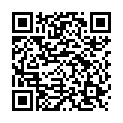|
|
|
| Module code: AGW23.3 |
|
|
4V (4 hours per week, accumulated) |
|
5 |
| Semester: 1 |
| Duration: 2 semester |
| Mandatory course: yes |
Language of instruction:
German |
Assessment:
Examination achievement
[updated 30.10.2023]
|
AGW23.3 (P311-0269) Applied Health Sciences, Bachelor, ASPO 01.10.2023
, semester 1, mandatory course
|
60 class hours (= 45 clock hours) over a 15-week period.
The total student study time is 150 hours (equivalent to 5 ECTS credits).
There are therefore 105 hours available for class preparation and follow-up work and exam preparation.
|
Recommended prerequisites (modules):
None.
|
Recommended as prerequisite for:
AGW23.11 Health and Environment
AGW23.14 Care Management and Evidence-Based Practice
AGW23.17
AGW23.18
AGW23.19
[updated 04.12.2025]
|
Module coordinator:
Prof. PhD Petra Riemer-Hommel |
Lecturer:
Prof. Dr. Christine Dörge
Prof. PhD Petra Riemer-Hommel
[updated 04.09.2023]
|
Learning outcomes:
Module 23.3.1: The Health System: The Basics
Learning outcomes:
After successfully completing this module, students will:
be familiar with historical and current developments and reforms in the German health care system
be able to describe the basic structure and data of the German health care system
understand the central principles of the statutory and private health insurance system and the statutory long-term care insurance system
be familiar with the central facilities and areas of care in the German health care system
be familiar with changing requirements and their implications
be able to justify how health care is developing in the context of demographic and structural conditions and where new fields of activity are opening up
be able to interpret current health and social policy discourses
be able to access data from the health care system
be able to clarify socio-legal issues with addressees in a way that is appropriate for the target group
be able to adopt a position and exert influence in the socio-political and socio-legal context
23.3.2.: Health care systems governance
Learning outcomes:
After successfully completing this module, students will:
be familiar with various organizational and design principles of health care systems
be able to name the players and their political options in the federal system
be able to analyze health policy reforms and discuss their effects
be able to recognize health-related problems and discuss them against the background of the "Health in all Policies" approach
be able to take a scientifically based position on problems in health care systems and health policy issues vis-à-vis players in the health care system
be able to independently and systematically access new developments in the health care sector
[updated 30.10.2023]
|
Module content:
Module 23.3.1: The Health System: The Basics
1. Historical development and foundations of the German health care system
2. Principles of social security
3. Public health insurance
4. Private health insurance
5. Social nursing care insurance
6. Current developments and reforms in the health care system
7. Central organizations and structures of outpatient and inpatient care in the German health care system
8. Relevant national and international health care policies
23.3.2.: Health care systems governance
Introduction to health and social policy
WHO systematics health care systems
Stakeholders, interests, and trade-offs in health care systems
Health in all Policies
United Nations Sustainable Development Goals - SDG 3 Health
[updated 30.10.2023]
|
Teaching methods/Media:
Blended learning
[updated 30.10.2023]
|
Recommended or required reading:
Will be announced at the beginning of the module.
[updated 30.10.2023]
|

